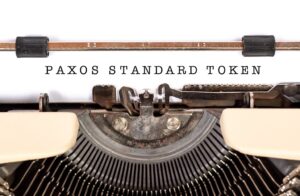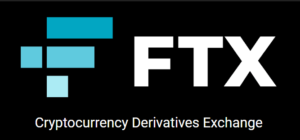Many people are willing to work harder to steal money than they would ever have to work to earn it. Moreover, the penalties for being caught stealing money far outweigh the potential benefits of getting away with it.
And yet, scammers continue to scam wherever they see an opening.
Debt relief, populated as it is with people anxiously seeking solutions to debt problems, is often seen as fertile ground for these bad actors. With that in mind, here’s some advice for avoiding debt relief scams.
When it Sounds Too Good to Be True
ADVERTISEMENT
“We guarantee we can help you pay off all of your debts for pennies on the dollar!“ That’s a tough idea to resist when your ends are so far apart they aren’t even speaking the same language. You’ll need to muster up the wherewithal to resist that siren song though, lest you get taken for a very expensive ride.
Legitimate debt relief companies are prohibited by law from guaranteeing they can get you a debt settlement deal with your creditors. Further, debt settlement only works on specific types of unsecured debt. Child support, alimony, car loans, home loans and federal student debt are immune to debt settlement.
What’s more, some creditors will refuse to accept debt settlement agreements altogether, so there’s no way anyone can guarantee your eligible debts can be settled—let alone the ineligible ones.
“We’ll Go To Work As Soon as You Pay the Settlement Fee”
The law also prohibits debt settlement companies from charging you upfront settlement fees. They can only request payment for services rendered after the services have been rendered. In other words, they have to negotiate an agreement with one of your creditors, get your approval of that agreement, then disburse whatever that agreement requires— before they can invoice you for that work.
ADVERTISEMENT
Yes, debt relief companies are allowed to impose a small signup fee and minimal monthly service charges. However, these typically only run in the neighborhood of $9.95. Meanwhile, settlement fees typically run between 15% and 25% of the amount of debt settled on your behalf.
Anyone asking for that money up front is operating in violation of the law.
“You Can Stop Communicating With Your Creditors Now”
Scammers advise marks to stop talking to creditors—they’ll take over from there on out. The problem with that is you’ll never know if they even got in touch with your creditors.
You’re happily sending the scammers money to “settle your debts, “ while your creditors have no idea you’ve “enrolled” in a debt relief program. By the time you figure out what’s going on, you could be many, many thousands of dollars deeper in debt, and the nefarious individuals have taken your money and disappeared.
“Don’t Worry About the Details, We’ll Take Care of Everything”
Ahhhhhhh, but the devil — as the old saying goes — is in the details. Scammers gloss over them because many aspects of the debt relief process can be off-putting at first glance.
For example:
• The forgiven amount of your debt might be subject to taxation by the IRS.
• The debt relief process will have a negative impact on your credit score.
• The process can take anywhere from two to five years to complete, depending upon the amount of debt you have, how many debts you have and with what entities those debts reside.
• There are no guarantees the process will work, because settlement agreements are predicated upon getting buy-in from creditors.
Any company rushing you to sign up before demonstrating crystalline transparency about those details should be avoided. In fact, that information should be conveyed before they look over your finances to see if you’re even a viable candidate.
The people with whom you’ve been speaking did look over your finances before asking you to sign up—right? That’s one of the hallmarks of the validity of Freedom Debt Relief and other legitimate operators in this space. Scammers don’t bother with that step, nor do they discuss credit card payment strategies with you firstbecause they have no intention of doing anything about your debt.
The Bottom Line
This brings us back to our first point of advice for avoiding debt relief scams. If it sounds too good to be true, it probably is. It is impossible to overstress the importance of conducting due diligence on any debt relief firm with which you’re considering contracting. Run their name past the Better Business Bureau. Check them out with the Office of the Attorney General in your state. Look to see if the American Fair Credit Council accredits them.
The money you save will most assuredly be your own.
DC Forecasts is a leader in many crypto news categories, striving for the highest journalistic standards and abiding by a strict set of editorial policies. If you are interested to offer your expertise or contribute to our news website, feel free to contact us at [email protected]
- Bitcoin
- blockchain
- blockchain compliance
- blockchain conference
- coinbase
- coingenius
- Consensus
- crypto conference
- crypto mining
- cryptocurrency
- DC Forecasts
- decentralized
- DeFi
- Digital Assets
- ethereum
- machine learning
- non fungible token
- plato
- plato ai
- Plato Data Intelligence
- Platoblockchain
- PlatoData
- platogaming
- Polygon
- Press Releases
- proof of stake
- W3
- zephyrnet













